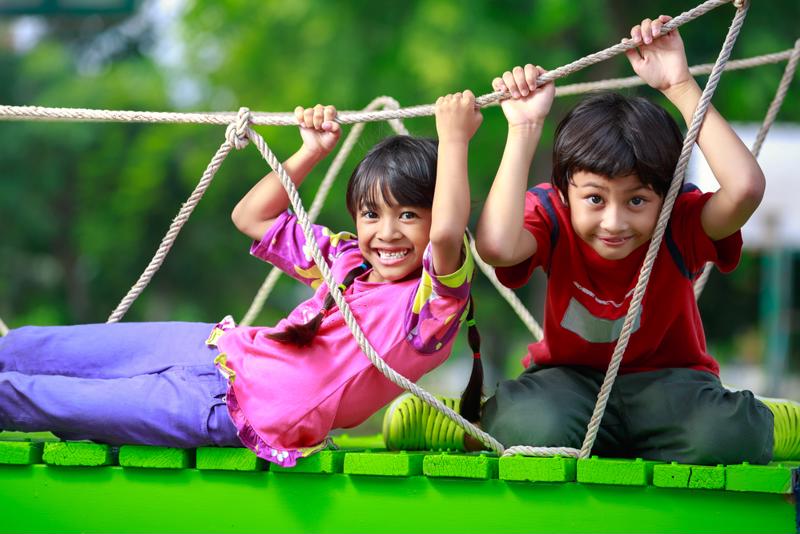
For most kids, longer days and warmer temperatures mean one thing – it's time to hit the playground. Whether your little ones are looking forward to reaching new heights on the swing set or building an entire mini metropolis in the sand box, they're likely dreaming about upcoming play dates at the park.
If your kids deal with seasonal allergies, however, the playground can be a source of more pain than pleasure. Parks are chock-full of allergy triggers, many of which can turn a fun afternoon into one of stuffy noses and itchy eyes.
Of course, the first line of defense in the battle against allergies is knowing exactly what's causing a reaction. Worried about your children experiencing allergies attacks at the park this spring and summer? Read on to discover common triggers and learn how you can keep your family happy and healthy all season long.

Sandboxes
Kids who enjoy creative, tactile, and solitary games often find refuge in sandboxes, where the unlimited play possibilities provide entertainment for hours on end. One minute, they're building castles and digging moats, and the next they're pretending the day at the park is really a day at the beach. In an age of constant screen time, the sandbox is a great space for children to unplug and exercise their imaginations.
Unfortunately, sandboxes are also a central source of playground allergies. According to the state of Indiana's seasonal allergy guidelines, this is because animals love sandboxes as much as kids. When furry friends take a roll in the sand, they're notorious for leaving behind dander, saliva, urine and feces, all of which can spur severe reactions in children with animal allergies. While it's difficult to ensure that a public sandbox won't contain at least trace amounts of allergens, you can protect your home sandbox by keeping it pet-free and covering it when it's not in use, recommended the source.
Pollen
In many cases, those playground-induced allergies actually stem from the environment in which your park of choice is located. Taking the kids to a grassy, plant-filled area might seem like a great idea on a sunny day, but it's this exposure to trees, flowers, and other allergen-producers that could be behind your children's unpleasant allergy symptoms.
If all your playground options are located in allergen-heavy spots, don't worry – there are still steps you can take to minimize your children's reactions. AAA recommended avoiding the park in the morning, as pollen levels tend to be higher earlier in the day. Schedule playground visits for days with little or no wind, and do your best to avoid hot days and cool nights, as these climates present the highest risk for allergy sufferers.
"Mulch can be a trigger for mold allergies."
Mulch
All parents are familiar with mulch – the soil-covering substance typically made from wood chips that can work its way into every shoe, car seat and pigtail in your home. Mulch can be much more than just an annoyance, however – it can be a major trigger for people with mold allergies. According to the state of Indiana, mulch can be a breeding ground for mold once it's exposed to moisture. This means that after just one rainy day, the mulch on your playground of choice could be dangerous for allergy-prone children.
Notably, mulch can be made from non-organic substances, like recycled tires, which provide a far more safe and enjoyable playground experience for kids with allergies. Do some research to find out which parks in your area employ artificial mulch and consider switching to a new playground if there's a chance it can reduce mold exposure.
Physical activity
Both allergens and physical activity put stress on a child's respiratory system. Unfortunately, most trips to the playground are filled with both. If your children are already experiencing allergy symptoms, encourage them to take it easy when it comes to running, jumping, and playing, as too much physical exertion may only make them feel worse. Explain to them that it's perfectly fine to take breaks during playtime, especially if they feel exhausted or are having difficulty catching their breath. This can be easier said than done, of course, especially if you have a high-energy clan. Try planning lowkey activities, like crafts, coloring or reading, to split up an otherwise active afternoon.
HealthDay noted that if kids are persistently experiencing breathing issues when playing outside, they may be living with a form of asthma. If respiratory issues continue to be a health problem for your children, consider bringing it up with your medical care provider.
In addition to being aware of these common playground allergy triggers, protect your family this spring and summer by providing them with efficient, effective allergy control products.









